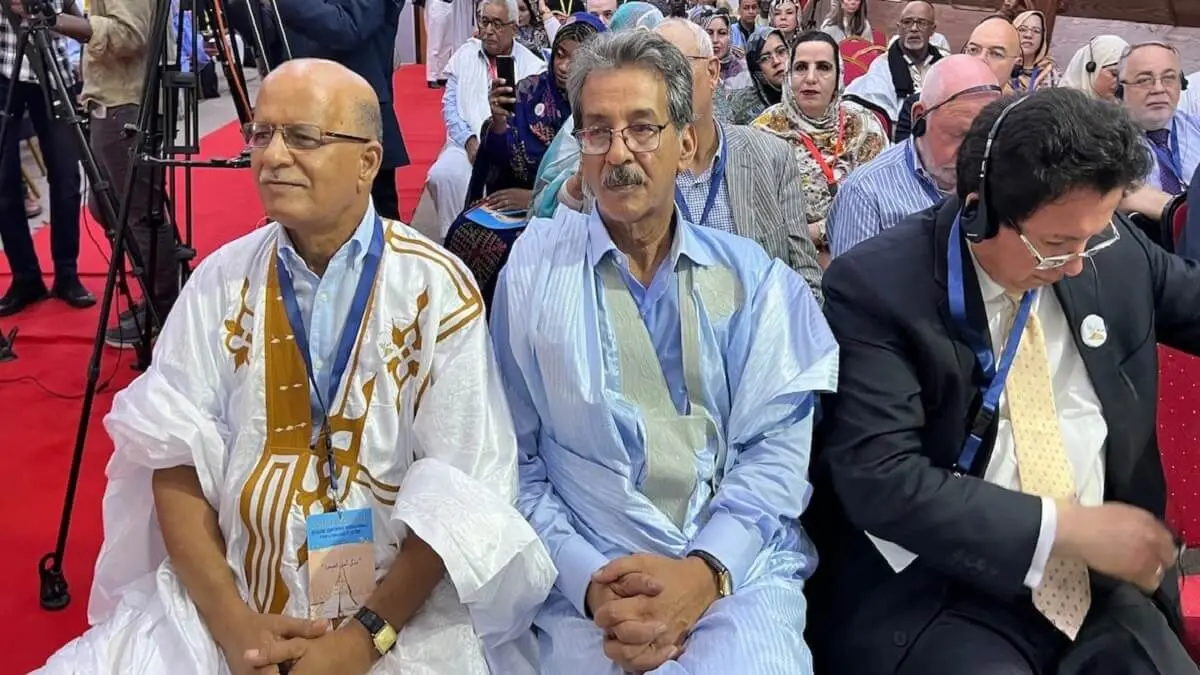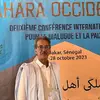De Mistura's unexpected trip to Sudafrica

The UN Secretary General's personal envoy Staffan de Mistura traveled to the South African capital last week where he held talks with Foreign Minister Naledi Pandor on Wednesday. In statements to the press following the meeting, the head of South African diplomacy limited herself to commenting that Mr. De Mistura presented "some approaches" to the problem of Western Sahara, alluding to the "confidential" character of the proposals which, according to the minister, have to be studied in depth in order to be able to answer questions on their contents.
The unexpected trip of the UN emissary was announced a few hours earlier by the spokesman of the Secretary General of the international body, Stéphane Dujarric, who explained that it was in response to an official invitation from the South African government and was part of the good offices of the emissary to unblock the political process around the Saharawi question.
The announcement of this trip is surprising and strange, since South Africa neither holds the presidency of the African Union, nor is it a member of the observer countries, nor of the group constituted by the United States and other permanent members of the Security Council, plus Spain, which usually draw up the draft resolutions to renew the mandates of MINURSO.
On the other hand, South Africa is the second and most important ally of the Polisario, only after Algeria. Its interference in the current context, unless it is to persuade the Polisario to come to the round table and respect the cease-fire, can only have adverse effects, further complicating the already difficult mission of the UN envoy. As if there were not enough reasons for the "imbroglio", De Mistura was somewhat tactless in announcing his visit to Pretoria, doing so only a few hours after the soccer match between the Moroccan and South African teams, with the latter winning the African Cup of Nations (CAN) championship.
Antonio Guterres' Personal Envoy has been deploying persevering efforts for more than two years to resume the political process interrupted in May 2019, following the resignation of his predecessor, former German President Horst Kohler. Unfortunately the results, so far, seem rather meager not to say discouraging.
During his trip to the region last September, the UN envoy received both elected officials inclined to Morocco's theses and various activists ideologically close to Algeria and Polisario. However, it is shocking that he has not yet received representatives of the Saharawi Movement for Peace (MSP), especially in view of the positive impact at all levels of the emergence of this new political actor, which has emerged from the bowels of the armed movement and which, from a moderate and conciliatory approach, is committed to a third way and is in possession of a clear and precise road map for the peaceful solution of the problem of Western Sahara, as he has personally witnessed on the ground.
While reiterating its willingness to contribute to the unblocking of the stalled peace process in Western Sahara, the PSM hopes that this unexpected and "mysterious" trip to South Africa does not end up being an "unfortunate slip" which precipitates another resignation and provokes the umpteenth failure of the UN emissaries in the former Spanish colony.
Hach Ahmed
First Secretary of the Saharawi Movement for Peace (MSP)

